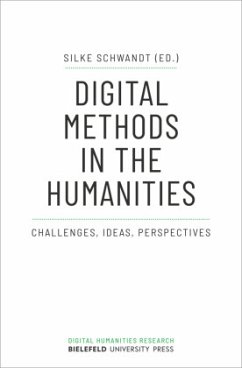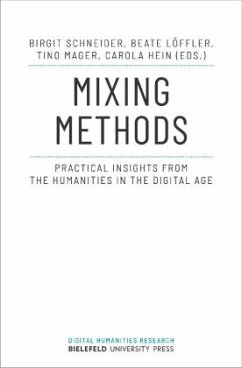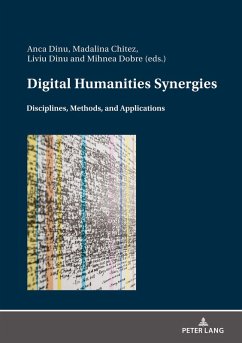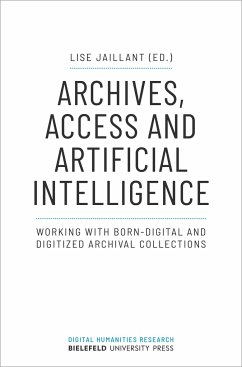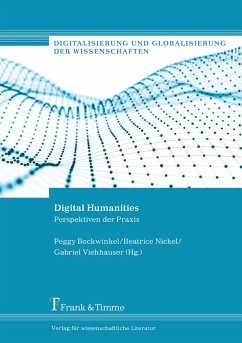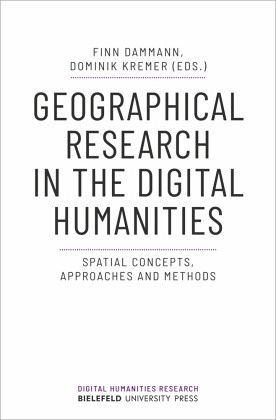
Geographical Research in the Digital Humanities
Spatial Concepts, Approaches and Methods
Herausgegeben: Dammann, Finn; Kremer, Dominik
Versandkostenfrei!
Versandfertig in 2-4 Wochen
31,99 €
inkl. MwSt.

PAYBACK Punkte
16 °P sammeln!
The richness of social and cultural theory in the humanities offers countless opportunities for using theory-informed concepts in data-based analysis workflows. The contributors to this volume thus encourage further research utilizing out-of-the-box models and approaches to space and place in the field of Digital Humanities. The collection follows the two complementary goals of providing promising conceptualisations of space and place for a broad audience from Digital Humanities, and of presenting current work in Digital Humanities using different conceptualisations of space and place or offer...
The richness of social and cultural theory in the humanities offers countless opportunities for using theory-informed concepts in data-based analysis workflows. The contributors to this volume thus encourage further research utilizing out-of-the-box models and approaches to space and place in the field of Digital Humanities. The collection follows the two complementary goals of providing promising conceptualisations of space and place for a broad audience from Digital Humanities, and of presenting current work in Digital Humanities using different conceptualisations of space and place or offering innovative methods for their analysis.
Dieser Artikel kann nur an eine deutsche Lieferadresse ausgeliefert werden.



